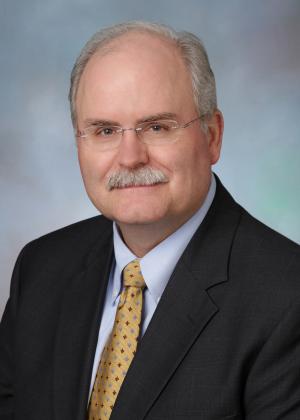This week, Global Update rings in the New Year with some thoughts from U.S. Grains Council (USGC) President and CEO Tom Sleight on predictions and priorities for 2015.
Q: Markets are constantly changing. What is new on the horizon for 2015?
A: If any lesson has been reinforced in recent years, it is to expect the unexpected. It is very possible that the biggest story for the Council in 2015 will be something none of us anticipates today. One of the Council’s strengths is the ability of our staff around the world to respond quickly and creatively when challenges arise.
There are some new developments on the horizon, however, as we head into 2015. In partnership with the Renewable Fuels Association (RFA) and Growth Energy, the Council is in the early stages of a major ethanol export initiative. We began a series of market assessment missions in selected countries last year, and we will be moving on to targeted market development activities this year.
With back-to-back record harvests and more competitive pricing, the United States has also recovered market share in a number of traditional markets in Asia, Latin America, the Middle East and North Africa. We want to sustain that rebound. We are moving very aggressively to explore the new opportunity with our next-door neighbor, Cuba, as a result of recently announced policy changes. We are looking at an expanded presence in Mexico, a market in which we already enjoy a commanding share and in which there is rapid growth and new opportunity. And of course, we are working at all levels to restore and normalize trade with China.
Q: China announced approval of MIR 162 just before Christmas. Do you expect a “return to normalcy” In 2015?
A: That remains to be seen. China’s approval of MIR 162 is certainly good news, but it is not yet clear how aggressively China will reenter the corn and distiller’s dried grains with solubles (DDGS) markets. The events of the last year have underscored the importance of a long-term solution on asynchronous approvals and a trade-enabling policy on low-level presence (LLP). Those remain top Council objectives in China. It is important to note that the Chinese feed and livestock industries, and ultimately Chinese consumers, are paying a very high price for China’s constriction of imports. These are important partners in China who want to buy U.S. coarse grains, and the economic and political reform in China on food and trade policy is very complex.
Q: Some are saying 2015 will bring a breakthrough on trade policy, particularly the Trans-Pacific Partnership (TPP). Do you think this will be the year for a deal?
A: Trade policy is intensely political in all countries. Negotiations often seem to be driven more by the political calendar than by technical discussions. It is fair to say that there is a window of opportunity this year for TPP. The United States just had Congressional elections, and Japan just completed parliamentary elections that resulted in an increased majority for the ruling Liberal Democratic Party. Bilateral discussions between the United States and Japan on agricultural issues had been one of the TPP sticking points over the past year. With the elections out of the way, the political leadership in both countries has an opportunity to make a deal. I lean towards the view that TPA (trade promotion authority) must happen first, then TPP will follow. Pay attention and learn more because these agreements are vital for U.S. agriculture. The next several months are critical.
Q: MAIZALL has raised its international profile with missions to Korea, China and the European Union, which included specific visits with the World Trade Organization (WTO) in Geneva and the United Nations’ Food and Agriculture Organization (FAO) in Rome. What is on the docket for 2015?
A: MAIZALL is a unique collaboration. When American, Argentine and Brazilian corn producers act as a team, they represent three-quarters of the world’s exportable corn surplus and they provide a united producers’ voice on market access and biotechnology issues. That is valuable. In 2015, MAIZALL will be broadening its outreach to pro-trade groups in targeted EU countries. It will also participate in the Global LLP Initiative, which is a working group of like-minded countries exploring solutions to this perennial question. We also hope to have the opportunity for MAIZALL to open a discussion with the Ukrainians at the Ukrainian Grain Congress, which will occur this March in Washington, D.C.
Q: Who will win the college football national championship game, Ohio State or Oregon?
A: If the Oregon Grains Commission was still a Council member, this would be a tougher choice, but since they are not, Ohio State in a squeaker. The Buckeyes are like the Council in recent years, facing tough times, adapting and becoming stronger!

